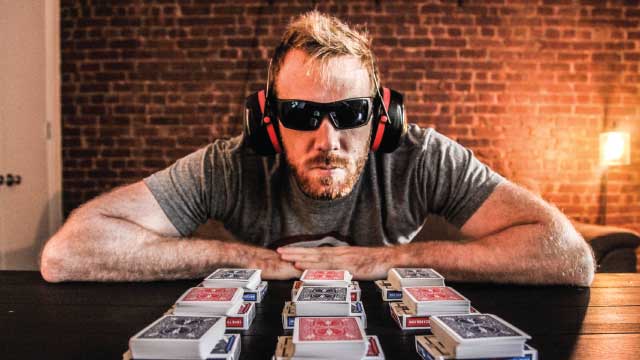 MEMORY MASTER: Nelson Dellis, four-time USA Memory Champion, preparing to memorize nine decks of cardsNELSON DELLIS
MEMORY MASTER: Nelson Dellis, four-time USA Memory Champion, preparing to memorize nine decks of cardsNELSON DELLIS
After Nelson Dellis’s grandmother passed away from Alzheimer’s disease in the summer of 2009, he became obsessed with memory. “I had seen her whole decline, so brain health was on my mind,” he says. He found out about annual memory competitions that tested people’s ability to remember large volumes of data—for example, the exact order of 104 playing cards in two decks—and began to learn the strategies so-called “memory athletes” used to pull off these incredible feats.
“I found the techniques worked, and with a bit of practice, you can do a lot more than you ever thought you could,” Dellis says.
He entered the 2010 USA Memory Championship in New York City and came in third. The next two years in a row, he ...





















